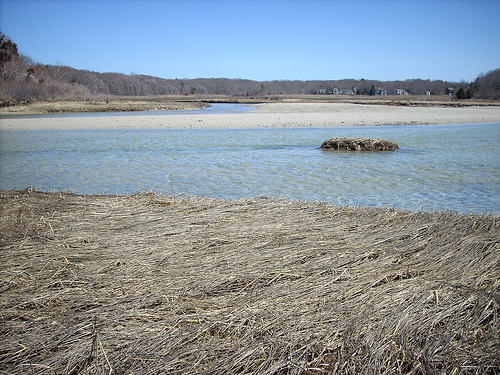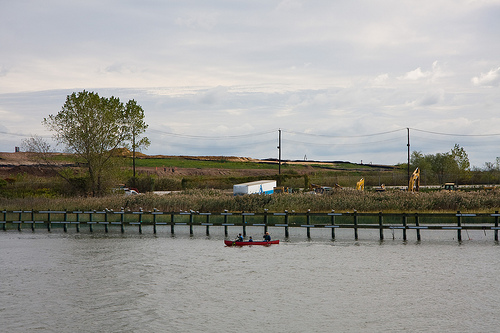Walking will solve it.
— Roman Proverb

Spring and fall, winter and summer for more than half my life, I have gone out walking almost daily on a road that edges a vast Cape Cod salt marsh. This loosens things up before I sit down with my notebook. A stream meanders through the marsh, and where it parallels the road I walk beside it, out to a bay beach parking lot, then down the strand a half mile or so to a stone jetty, one of two that keeps the tide- and wind-mauled sands from closing the entrance to the harbor.











